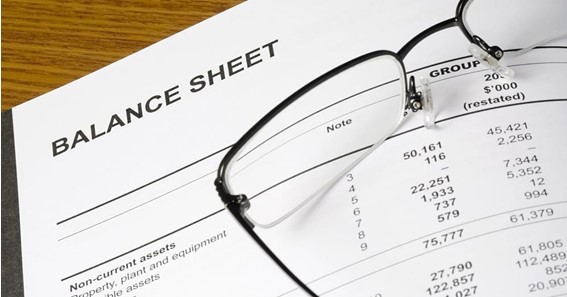Internally, balance sheets are often used to help managers make decisions. For external audiences, such as lenders, investors, and other stakeholders, Balance sheet Free is a useful tool.
What you own is revealed in a balance sheet (also known as a financial statement) (your total assets). If you have debts, they also reveal how much money you have left to pay off (your total obligations). Your company’s net value is the difference — shareholders equity.
Your company’s finances might reveal potential problems before they become serious ones if you keep a close eye on them. About 29% of all small firms fail for this very reason. This is a problem that can be avoided if the reporting is done correctly.
When all is said and done, a balance sheet is the key financial document you’ll need to get your company through the years to come. To get the most out of creating a balance sheet, you don’t need to become bogged down in sophisticated formulas. Managing your small company finances and making necessary adjustments may be difficult if you do not have a business plan in place.
click here – 6 Of The Best Books on Investing
Do Balance Sheets Have Any Advantages?
- Gauging risk and reward.
A balance sheet is a list of all of your company’s assets and liabilities. You can create cash and maintain operations based on your current and long-term assets. Prioritize your bills based on their due dates, both short-term and long-term.
To have a positive net worth, you should have more assets than liabilities. This means that you may need to secure more funding from lenders or investors if your present liabilities exceed your existing cash position. If a company has too much debt, its balance sheet will show it.
- To Obtain Financial Support.
Your company’s financial health can be immediately gleaned from your balance sheet. A company’s financial health and creditworthiness are typically assessed using a balance sheet.
Financial statements can show lenders that you will be able to pay back a loan on time if you ask for one. In order to know where their money is going and when it will be repaid, potential investors consult balance sheets.
click here – Learn Flexi Cap Fund Vs. Multicap Fund in Detail
- Take Strategic Business Decisions
Financial tracking might help you spot problems before they become serious difficulties. An accurate and up-to-date set of balance sheets is essential for any small firm looking to avoid bankruptcy.
Many small business owners fail to budget properly, overspend on launch expenditures, and wait too long to apply for financing. Creating a good business strategy and using financial statements to guide business decisions can help to prevent these frequent financial issues.
- Avoiding Problems in the First Place
Profit is the primary goal of any firm. The equity of a well-run company should rise over time. If this isn’t happening in your company, a closer look at certain assets and liabilities on your balance sheet may reveal the source of the problem.
Having a large amount of inventory, for example, could put your company at undue risk. Unsold inventory can easily turn into a major liability.
- For Easier Tax Preparation
Both tax planning and preparation rely heavily on maintaining complete and accurate business records. When it comes to preparing correct tax returns, the IRS suggests that small business owners keep their financial records in order.
Having all of your financial records in order will allow your accountant to prepare your tax returns accurately and ensure that you aren’t overpaying. As for an IRS audit, you’ll need to produce a complete collection of financial records, including financial reports and receipts.
Conclusion:
Financial reporting should be a top priority for your company. It is critical for small business owners to prepare and comprehend their company’s financial statements. With the balance sheet, you and your stakeholders are always aware of where you stand financially.
You can make better management judgments if you keep this financial information up to date. Your small business’s efficiency, borrowing habits, and overall financial health may also be improved.
In addition to a balance sheet, an income statement and a cash flow statement may be beneficial for your company. To help you better understand how these financial documents function, we’ve included links to both of our detailed guides.
Do you use a balance sheet on a regular basis to monitor your company’s finances? Let us know what you think in the comments below!









